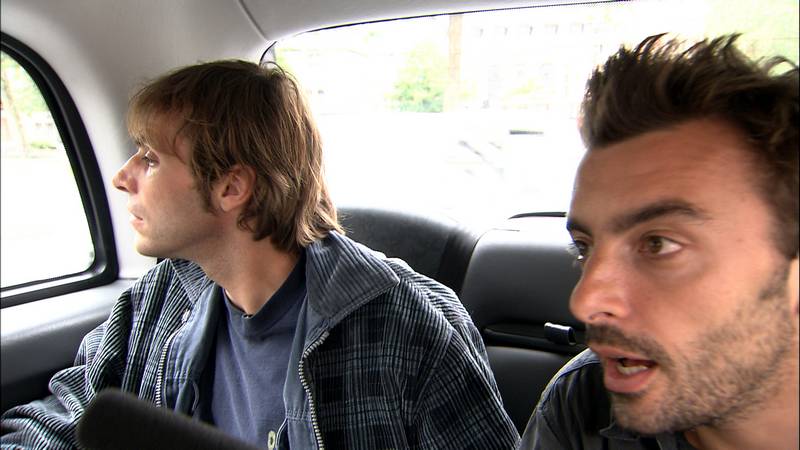I am persuaded that the documentary “Unknown White Male” is either (a) factual and authentic, or (b) the most convincing mockumentary ever made. In a recent story I cited rumors and questions about the film, which opens Friday in some markets and March 10 in Chicago. It tells the story of Doug Bruce, who on July 3, 2003, found himself on a subway train in Coney Island with no idea who he was or how he got there. He was subsequently diagnosed with retrograde amnesia, and the film charts his life as he deals with his condition.
The film is the remarkable story of a man trying to rebuild his sense of self. He remembers nothing about his earlier years as a stockbroker, a photographer, a son, a friend. The film’s director, Rupert Murray, had known him since they were both 18 or 19, and began making the film when he learned of the amnesia.
The possibility that the film is a hoax has been raised in articles in Variety, GQ, the London Guardian and the London Daily Mail. They point out that Murray coincidentally met with Bruce in New York three months before the amnesia incident, that he’s vague on how he first met Bruce or where his friend worked or lived, that the Harvard expert cited in the film as an expert on amnesia never actually met Bruce. To these questions I added one of my own: Why did a Lexis-Nexus search of the databases of all U.S. and UK newspapers reveal not a single story about this young man who was trying to find out who he was?
Excellent questions. Today I spoke with Rupert Murray and with the film’s executive producer, Jess Search, and they provided answers.
1. Why no news items? “Doug was taken to the hospital in Coney Island at 8 a.m., and by midnight had been collected at the hospital by his friend Nadine,” said Search. In the film, Nadine is tracked down through the telephone number of her mother, found in Bruce’s possession. “It never made the papers because there was no need to release a story and photo asking who he was. He’d been identified, so it remained a personal story.”
2. Why was there convenient video material from very early in his experience? The impression that there was a six-day search for his identity was perhaps given by the film’s use of a video interview with Bruce six days after the event, Murray said, but the video was made in his home “by a couple of guys, friends of Nadine, that they met in a sushi bar. They thought his story was incredible and sat him down and did the interview. Doug told me about it when I started on the film.”
3. Why is Murray vague about details of his friendship with Bruce, or details of his friend’s life during the forgotten years? “I can’t actually remember the first time we met. We were 18 or 19. It was in London. We had a large group of mutual friends. Most of those days for me are quite hazy. When you think about your friends, you may be surprised how few finite details you know. Why didn’t I know the name of his stock broking firm? Quite frankly, I make films and went to art school. I didn’t know or care what firm he worked for. I’d call him up in New York and we’d go out for a drink.”
4. What’s the story with Dr. Daniel L. Schacter, chairman of psychology at Harvard? “He is America’s leading expert on amnesia,” Jess Search said. “His role in the film is to explain what it is. We used him as a reference point. He is not presented in the film as being Doug’s doctor.”
5. Why have so many viewers suspected the film was a hoax? “It is possibly my fault as a filmmaker,” said Murray. “I wasn’t only a filmmaker, I was a friend. When I met him for the first time, there was no doubt in my mind he was telling the truth. I didn’t feel the need to wheel out doctor after doctor. I was more interested in the impact of the event on Doug and his family and friends.”
6. Does the possibility of a hoax help promote the film? “I would never compromise my reputation by being party to a hoax,” says Jess Search. “I worked five years as commissioning editor at Channel 4 in the UK. I set up the British Documentary Film Foundation. I am the organizer of the new British documentary festival. I am 100 percent behind this film.” Murray adds: “The hoax issue clouds people’s judgment. The film is so fascinating as a story of memory and identity that it would be a shame if it were discounted. The publicity may be great for the film, but it’s not so great for Doug, after what he’s been through.”
7. But could it be the greatest mockumentary ever made? “We’ve had that reaction many times over,” Search said. “We’re good, but not that good. If it’s actually a piece of drama, it’s unbelievably brilliant.”












